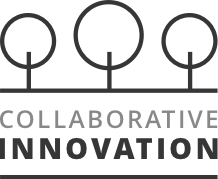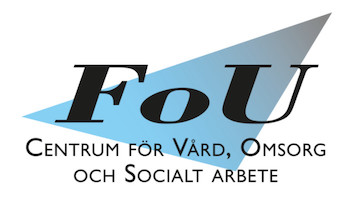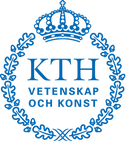PYC Project

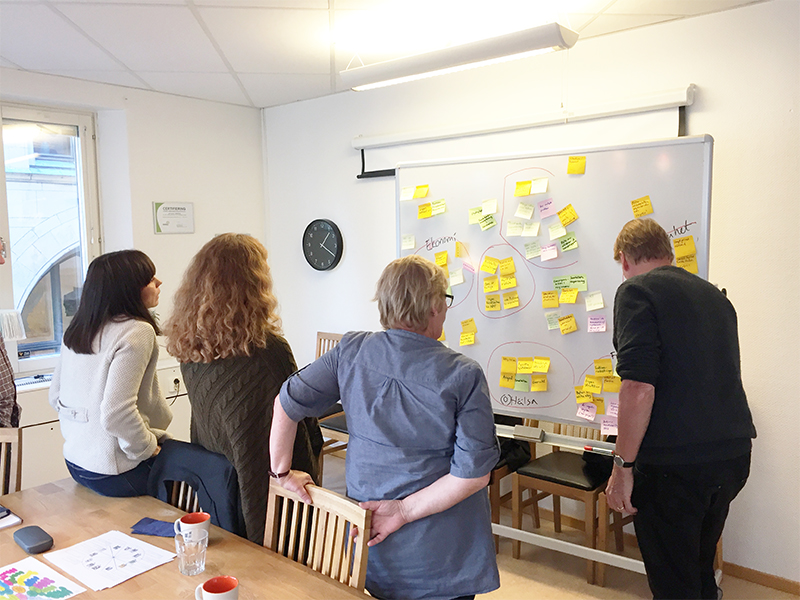
The one-year co-design project (May 2018 – May 2019) is called Parenting Young Children (often simplified to PYC), which is a home-based program to support parents with cognitive difficulties to care for their children. PYC is based upon social-pedagogical principles of social care and support. The project partners include municipalities, social care workers and PYC families. The project explores how PYC parents and social care workers can be supported in their meetings and everyday activities.
A one-year co-design project (May 2017 – May 2018) exploring the innovation capability and design possibilities in and around three municipality-driven group houses for people on the Autistic spectrum.The residents, all diagnosed on the autistic spectrum, are subject to the Swedish Act concerning Support and Service for Persons with Certain Functional Impairments (LSS in Swedish), and are therefore provided with municipality support and the possibility to live in a group house with staff present 24 hours a day. The project partners were the three houses residents with autism, their relatives and legal guardians, municipality carers, the municipality care organization and the academic researchers. The co-design process allowed the project and the different partners to explore their everyday lives and activities in new ways, identify challenges and possibilities and to both design and innovate new ways of working, care solutions and tools to facilitate a better everyday life.
BACKGROUND INFORMATION
What is PYC?Parenting Young children is a social-pedagogical training program for municipality care workers. PYC comes originally from Australia but exists since a few years also in Scandinavia and is in Sweden managed by a consortium. The consortium educate care workers in how to work with PYC and do promotion work to spread PYC to more and more municipalities.
Our project collaborates with some of the formal PYC educators, social workers and families subject to the PYC program. The project mission is not to further innovate or develop the PYC program, but look at what challenges and possibilities there are when social workers go out to families and works with PYC. The project seek to identify and design innovate support solutions for both social workers and families inspired by the values and ideas of PYC.
The stakeholders and their needs
The project is motivated by a municipality wish to explore if co-design can be a way forward to do innovativework with PYC and its implementation into the everyday lives of care workers and the PYC families. The two academic partners see possibilities in developing technology and co-design methods suitable for PYC families and care workers. Also, the academic partners finds it interesting to research aspects of collaboration between stakeholders with potentially different agendas, goals, and resources.
Our project collaborates with some of the formal PYC educators, social workers and families subject to the PYC program. The project mission is not to further innovate or develop the PYC program, but look at what challenges and possibilities there are when social workers go out to families and works with PYC. The project seek to identify and design innovate support solutions for both social workers and families inspired by the values and ideas of PYC.
The stakeholders and their needs
The project is motivated by a municipality wish to explore if co-design can be a way forward to do innovativework with PYC and its implementation into the everyday lives of care workers and the PYC families. The two academic partners see possibilities in developing technology and co-design methods suitable for PYC families and care workers. Also, the academic partners finds it interesting to research aspects of collaboration between stakeholders with potentially different agendas, goals, and resources.
activities
Throughout the project a number of co-design workshops and activities have been arranged between PYC trained staff at Motala and Åtvidaberg municipality.
Early activities focused on understanding what PYC is, how each municipality wotk with PYC and learning from each other about challanges, possibilities and how to see everyday, professional care and support activities in new ways.
Later on th eproject activities focused on th eecology of actors and resources involved in everyday work and implementation of PYC. The project started to explore supportstructures and needs.
Finally, the project decided on working with the idea of a collaborative web-based platform to support the professional role of PYC workers. PYCIPEDIA was born.
Early activities focused on understanding what PYC is, how each municipality wotk with PYC and learning from each other about challanges, possibilities and how to see everyday, professional care and support activities in new ways.
Later on th eproject activities focused on th eecology of actors and resources involved in everyday work and implementation of PYC. The project started to explore supportstructures and needs.
Finally, the project decided on working with the idea of a collaborative web-based platform to support the professional role of PYC workers. PYCIPEDIA was born.
OUTCOME
The main outcome of the project is the collaborative platform PYCIPEDIA.
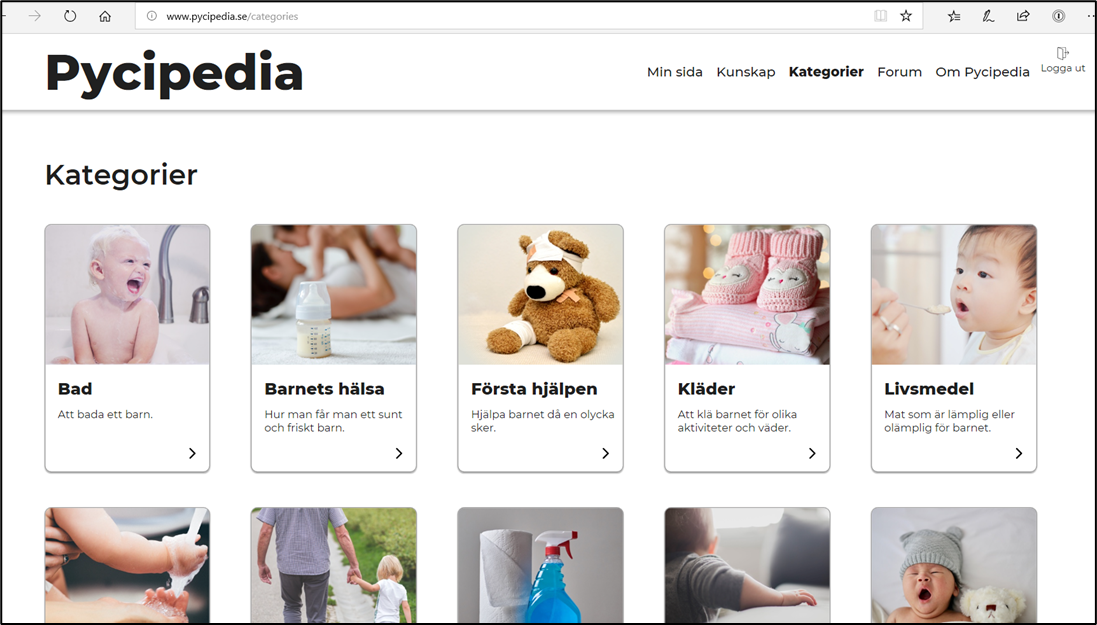 PYCIPEDIA is a web-based collaborative tool for social workers that support parents with intellectual disabilities taking care of their small children.
These particular social workers have been certified in providing parenting-skills training and support for parents with intellectual disabilities or with learning difficulties.
As only a relatively small number of social workers are certified in providing the relevant support, there may be few colleagues to discuss with and learn from,
even in larger municipalities with many social workers. To support social workers in providing the best possible support,
the web-based collaborative tool PYCIPEDIA has been co-designed with social workers from two Swedish municipalities.
PYCIPEDIA is a web-based collaborative tool for social workers that support parents with intellectual disabilities taking care of their small children.
These particular social workers have been certified in providing parenting-skills training and support for parents with intellectual disabilities or with learning difficulties.
As only a relatively small number of social workers are certified in providing the relevant support, there may be few colleagues to discuss with and learn from,
even in larger municipalities with many social workers. To support social workers in providing the best possible support,
the web-based collaborative tool PYCIPEDIA has been co-designed with social workers from two Swedish municipalities.
The tool allows social workers to log in, and independent from what municipality they work in, create, browse, edit and share material (e.g. text, images and video) that can support the parents. They can discuss cases, rate online material, and access a forum. Then can share material and guides, for example how to make a lunch for a kindergarden fieldtrip, to individual parents via an app.
 PYCIPEDIA is a web-based collaborative tool for social workers that support parents with intellectual disabilities taking care of their small children.
These particular social workers have been certified in providing parenting-skills training and support for parents with intellectual disabilities or with learning difficulties.
As only a relatively small number of social workers are certified in providing the relevant support, there may be few colleagues to discuss with and learn from,
even in larger municipalities with many social workers. To support social workers in providing the best possible support,
the web-based collaborative tool PYCIPEDIA has been co-designed with social workers from two Swedish municipalities.
PYCIPEDIA is a web-based collaborative tool for social workers that support parents with intellectual disabilities taking care of their small children.
These particular social workers have been certified in providing parenting-skills training and support for parents with intellectual disabilities or with learning difficulties.
As only a relatively small number of social workers are certified in providing the relevant support, there may be few colleagues to discuss with and learn from,
even in larger municipalities with many social workers. To support social workers in providing the best possible support,
the web-based collaborative tool PYCIPEDIA has been co-designed with social workers from two Swedish municipalities.
The tool allows social workers to log in, and independent from what municipality they work in, create, browse, edit and share material (e.g. text, images and video) that can support the parents. They can discuss cases, rate online material, and access a forum. Then can share material and guides, for example how to make a lunch for a kindergarden fieldtrip, to individual parents via an app.
